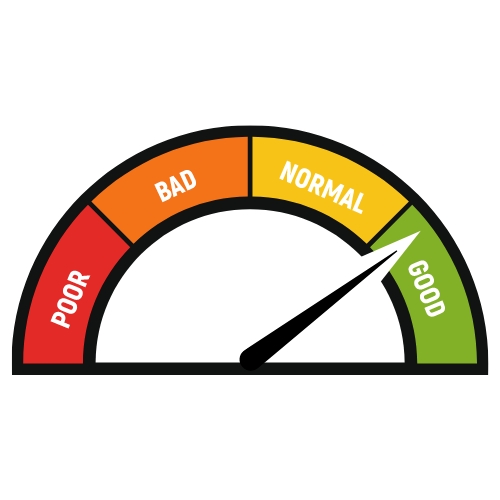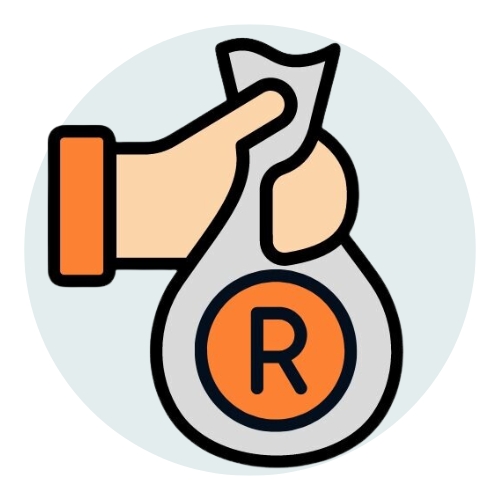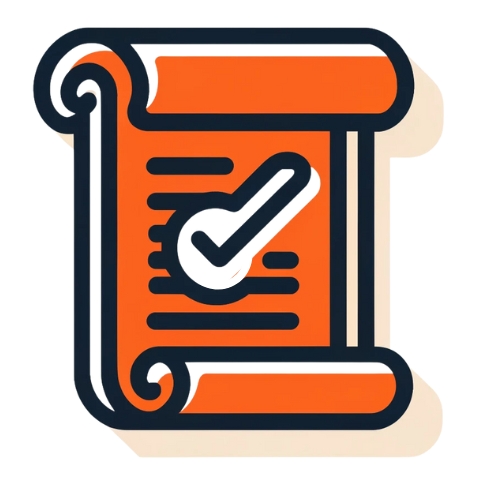
Personal loans are a common solution for individuals in South Africa seeking to cover unexpected expenses, consolidate debt, or finance major purchases. However, not everyone is eligible for a personal loan immediately. A significant factor that lenders consider is the duration of your current employment. Employment stability reassures lenders that you have a reliable income source to repay the loan.
Key Takeaways
- Employment stability is essential: Most South African lenders require a minimum employment period of 3 to 12 months to qualify for a personal loan. The longer you have been employed, the higher your chances of approval, particularly for larger loan amounts.
- Credit score and income are important: In addition to your employment history, having a strong credit score (typically above 650) and a consistent income are crucial factors that can enhance your approval chances and potentially lower your interest rates.
- Options for shorter employment: If you have not been employed long enough, consider alternatives such as using a co-signer, applying for secured loans, or seeking lenders with flexible criteria tailored for freelancers or contract workers.
Personal Loan Eligibility Criteria
When seeking a personal loan in South Africa, lenders evaluate several key factors to determine your eligibility.
Key Factors Lenders Consider

Credit Score: A strong credit score, typically above 650, reflects responsible credit management and enhances your chances of approval. In contrast, a poor score may lead to higher interest rates or denial of the loan. Check your credit report for free through services like Experian.

Monthly Income: Lenders review your income to assess your capacity to handle loan repayments. One common method they use is calculating the debt-to-income ratio, which measures your monthly debt obligations against your income. A lower ratio improves your likelihood of receiving approval for the loan.

Employment Stability: Lenders seek evidence of stable employment to confirm a reliable income source. Most expect a duration of employment ranging from 3 to 12 months, with longer employment history improving your chances of approval.
The Importance of Employment in Loan Eligibility
Employment is crucial as it demonstrates your ability to repay the loan. Full-time, permanent employees typically have a higher approval rate due to their stable income. Conversely, freelancers or contract workers may encounter stricter requirements and may need to provide additional documentation. Steady employment assures lenders that you can consistently meet repayment obligations.
Personal loan declined? If you’ve been turned down for a loan, knowing why can help you better prepare and increase your chances of approval in the future.
About Arcadia Finance
Get Your Loan Hassle-Free with Arcadia Finance – No Application Fees and Access to 19 Trusted Lenders Regulated by South Africa’s National Credit Regulator. Fast, Reliable Solutions Tailored to Your Needs.

The Role of Employment Duration in Personal Loan Applications
Employment duration is a significant factor that South African lenders consider when reviewing personal loan applications. The length of time you have been employed in your current role instills confidence in lenders regarding your ability to maintain a stable income, which is crucial for meeting the repayment terms of the loan. Let’s explore how this impacts your application and the typical requirements involved.
Minimum Employment Duration Requirements
South African lenders usually stipulate a minimum employment period before approving a personal loan. This requirement is designed to ensure that your income is stable and sufficient to manage monthly repayments.
| Employment Duration | Loan Type | Description |
|---|---|---|
| 3 months | Small loan amounts | Suitable for applicants with a good credit score. Short employment tenure accepted. |
| 6 months | Mid-range loan amounts | Demonstrates greater stability, increases approval chances for moderate loans. |
| 12 months | Larger loan amounts or lower credit scores | Required for higher loan amounts. Shows long-term income consistency. |
Why Lenders Require Stable Employment
Lenders require stable employment because it signifies a reliable source of income, directly influencing your ability to make regular loan repayments. A consistent work history lowers the lender’s risk, assuring them that you possess the financial means to meet your loan obligations without defaulting.
Additionally, stable employment suggests that you are less likely to experience income disruptions, such as sudden unemployment, which could hinder your ability to repay the loan. The longer you remain in a job, the more secure your income appears to lenders.
Understanding how a loan application works will give you an advantage when meeting employment requirements. Get familiar with what lenders look for to avoid delays and improve your approval chances.
Exceptions to the Rule
Not all applicants conform to the typical employment profile. In South Africa, self-employed individuals, freelancers, and contract workers often face stricter criteria when applying for personal loans due to the fluctuating nature of their income. However, some exceptions can apply:
- Self-employed individuals: Lenders may approve loans for self-employed applicants who can provide thorough financial documentation, such as tax returns, bank statements, or audited financial records, demonstrating a steady income over an extended period.
- Contract workers: While contract workers may lack long-term job security, some lenders may consider their applications if they have consistently worked under renewed contracts for the same employer or within the same industry. Providing proof of ongoing contract work can help illustrate financial stability.

Types of Jobs and Their Impact on Loan Approval
Different types of employment can greatly influence your chances of obtaining a personal loan. Lenders consider job stability a crucial indicator of your ability to repay the loan. Here’s how your employment type may affect your approval chances:
| Employment Type | Loan Approval Impact | Additional Requirements |
|---|---|---|
| Permanent Employees | Permanent employees are often regarded as lower-risk borrowers because their job stability and reliable income increase their likelihood of securing loans. | Having several months of full-time permanent employment can lead to higher loan amounts and lower interest rates. |
| Contract Employees | Contract workers face more difficulty as their employment is less stable, but long-term contract workers may still qualify. | Lenders may require proof of contract renewals and steady income over several contract periods to reduce perceived risk. |
| Self-Employed Individuals | Self-employed individuals encounter the most stringent requirements when applying for loans, as their income variability makes it more challenging to demonstrate financial stability. | Applicants are typically required to submit tax returns, audited financial statements, or bank statements that demonstrate a stable income. Additionally, a higher credit score may be necessary for approval. |
It’s essential to know how loan interest rate calculation works, as this will affect your repayment plan and the total cost of the loan over time.
How Long Should You Work Before Applying for a Loan?
When seeking a personal loan in South Africa, the duration of your employment can greatly influence your likelihood of approval. Generally, lenders expect applicants to have been employed for a minimum period, although this requirement may differ among institutions and based on the loan amount.
| Bank | Minimum Employment Duration | Income Requirements | Other Factors |
|---|---|---|---|
| Absa Bank | 3 to 6 months, depending on loan size | R1 500 for smaller loans (2-6 months); R2 000 for larger loans (12 months or more) | Salary must be deposited into a bank account. High credit scores may lead to quicker approval. |
| African Bank | At least 3 months with proof of 3 salary deposits | Payslips and bank statements needed | Good credit score required for better loan terms. Regular income must be verified. |
| Standard Bank | 6 months (recommended for better approval chances) | Consistent salary with stable income | Employment stability is a key factor. Bank assesses the ability to repay based on income. |
| FNB | 3 to 6 months depending on loan type and size | Payslips and bank statements | High credit scores and regular salary deposits improve approval chances. |
Alternatives for Shorter Employment Tenures
If you haven’t been employed long enough to meet standard requirements for a personal loan, several alternatives can help you secure funding.
Co-signers or Guarantors
Including a co-signer or guarantor on your loan application can be beneficial if your employment history is limited. A co-signer with a stable job and good credit can share the loan’s responsibility, reducing the lender’s risk and enhancing your chances of approval.
Secured Personal Loans
You might consider applying for a secured loan, where you offer collateral—such as property, a vehicle, or another asset. This arrangement provides the lender with assurance, which may make them more flexible regarding employment duration requirements.
Loans for Freelancers or Contract Workers
Some lenders offer specialized loan products tailored for freelancers, contract workers, or self-employed individuals. These loans often have flexible criteria to accommodate those with irregular income or shorter employment histories, making it worthwhile to explore options from lenders focusing on these employment types.
Personal Loan Products with Flexible Employment Criteria
Additionally, various personal loan products exist with flexible employment requirements. These loans are designed for individuals who may not meet traditional employment criteria but possess other favorable factors, such as a strong credit score or alternative income sources.

How to Improve Your Chances of Loan Approval
If you haven’t yet fulfilled the employment requirements for a personal loan, there are several steps you can take to enhance your chances of approval.
- If You Haven’t Met the Minimum Employment Requirement
If your employment history falls short of the lender’s requirements, consider postponing your application for a few months, particularly if you’re nearing the minimum employment duration. Use this time to focus on maintaining stable employment and gathering essential documentation to bolster your application.
- Improve Your Credit Score and Financial Stability
Enhancing your credit score can significantly boost your chances of securing a loan, regardless of your employment duration. Ensure that you pay all your bills punctually, reduce any existing debt, and avoid accumulating excessive new credit. Practicing responsible financial management in the months leading up to your application can have a substantial impact. Some lenders may approve your loan based on a solid credit score, even if you haven’t fully met the employment history requirement.
- Gather Documentation to Support Your Application
Even with a shorter employment history, providing thorough documentation can strengthen your application. Prepare pay slips, bank statements, and proof of income in advance. For self-employed individuals, having tax returns and financial records ready can help demonstrate a consistent income. The more complete and transparent your application is, the higher your chances of approval, even with a limited employment tenure.
Ever come across lenders who ask for fees upfront? While it might seem harmless, these advance fee loans often come with hidden dangers. Before committing, make sure to read What You Need to Know About Advance Fee Loans and protect yourself from common pitfalls.
Conclusion
Securing a personal loan in South Africa primarily hinges on having stable employment, which usually needs to be between 3 to 12 months, alongside maintaining a strong credit score and consistent income. Full-time permanent employees generally enjoy a greater likelihood of approval. However, freelancers and contract workers can still qualify by presenting additional documentation or choosing secured loans. By understanding these requirements and preparing the necessary documents, you can enhance your chances of obtaining the loan that best suits your financial needs.
Frequently Asked Questions
Most lenders in South Africa require a minimum employment duration of at least 3 to 6 months to qualify for a personal loan. For larger loan amounts, some institutions may expect up to 12 months of stable employment. It’s best to check your lender’s specific requirements.
Obtaining a personal loan with less than 3 months of employment can be challenging. However, some lenders may consider your application if you have a strong credit score or if you provide a co-signer. You might also qualify for smaller loan amounts.
In addition to employment duration, lenders evaluate your credit score, monthly income, and overall debt-to-income ratio. A solid credit score and consistent income can enhance your chances of approval, even with a shorter employment history.
Yes, contract workers and freelancers can qualify for personal loans, but they may encounter stricter requirements. Lenders often request additional documentation, such as bank statements, proof of ongoing contracts, or tax returns, to assess income stability.
If you haven’t met the employment duration requirement, you can improve your chances by securing a co-signer, applying for a secured loan with collateral, or working on enhancing your credit score. Additionally, providing detailed financial records, such as consistent bank statements, can strengthen your application.




